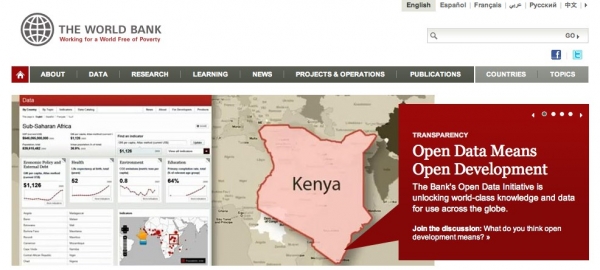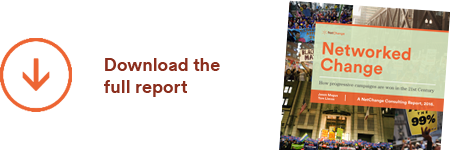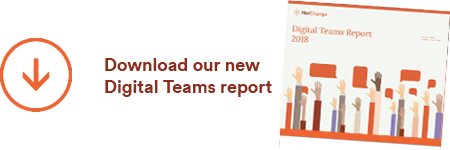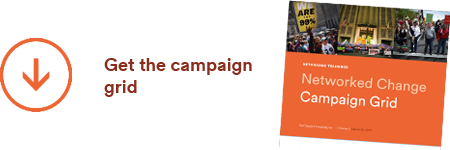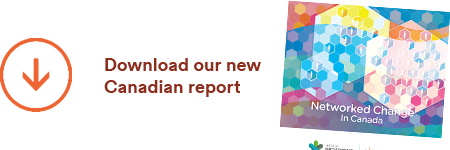It isn’t every day you open your favourite newspaper and see an article that validates absolutely everything you’ve been prattling on about for the last few years. But there it was, on the front page of the business section in last Sunday’s New York Times: “World Bank Opens its Treasure Chest of Data”, and it’s the most powerful case study of using digital as a catalyst to renew a tired institution that I’ve come across in years.
You see it wasn’t merely the story about another government group embracing open data, which, as exciting as that is, is often only a policy wedge to get at the juicier stuff. This was a story of an institution in transition, being humbled by how difficult it is to make change in this complex, interconnected world, and realizing the limits of the “we’re big enough to go it alone” approach it’s taken for 67 years.
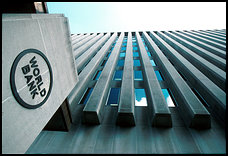 Why is the World Bank, one of the strongest and richest institutions on the planet, taking open seriously? Consider this context for change from the article, and tell me if any of it sounds familiar:
Why is the World Bank, one of the strongest and richest institutions on the planet, taking open seriously? Consider this context for change from the article, and tell me if any of it sounds familiar:
- Many people, particularly in the developing world, have long questioned whether its economic development mission serves the interests of anyone but wealthy nations like the US (growing credibility and brand problems that they are moving the needle on their mission)
- It’s long been regarded as a windowless ivory tower (out of touch and inaccessible)
- While it is huge, it’s competing for influence and power with Wall Street, national governments, and regional development banks. It’s no longer the only game in town (increasing competitive space)
- It’s vast stores of development data can inform decisions that deeply impact the lives of billions of people, yet they have previously been hoarded by insiders and paid subscribers in government (centralized, “our experts know best” model)
Their President Robert Zoellick is out saying things we rarely hear from the heads of powerful institutions: “for too long, prescriptions have flowed one way. We do not have a monopoly on answers.” And how’s this for a mandate for culture change. Zoellick is telling his 10,000 employees – surely some of the brightest minds on the planet – that “he no longer considers them the center of the development universe anymore.”
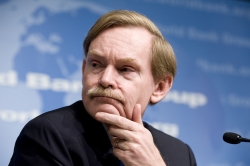 It wasn’t just these bold words from their leader that struck me, the article goes into detail on the enormous cultural and structural changes required to shift an entire institution towards an uncomfortable new model. One that, while it offers clear benefits to achieving its mission, shakes up internal power dynamics. This opening process tends to erode the control of the powerful cadre of mostly middle managers whose “fiefdoms are preserved by maintaining the status quo and so have little incentive to implement change”. Other than senior executive engagement, middle management inertia has been the second most significant cause of failure in change projects I’ve been involved with, so it’s a critical piece to expect and manage.
It wasn’t just these bold words from their leader that struck me, the article goes into detail on the enormous cultural and structural changes required to shift an entire institution towards an uncomfortable new model. One that, while it offers clear benefits to achieving its mission, shakes up internal power dynamics. This opening process tends to erode the control of the powerful cadre of mostly middle managers whose “fiefdoms are preserved by maintaining the status quo and so have little incentive to implement change”. Other than senior executive engagement, middle management inertia has been the second most significant cause of failure in change projects I’ve been involved with, so it’s a critical piece to expect and manage.
So what about the benefits of all this risky innovation? As with many change initiatives it’s too early to tell, but the article points to these:
- Its newly released open data portal has been visited 4.5M times, significantly more than any other content on its website
- Their “Apps for Development” global apps contest was a huge success. “We could have had a hundred smart people sitting here for a year and never have come up with that stuff” says Zoellick
- Shifting resources towards capturing and sharing mapping data for Haiti has allowed over 600 external researchers, engineers, and governments to support the rebuilding. And at a cost of a typical World Bank report
- Their efforts to open up development data in Kenya to empower citizens are getting a lot of press. This radical experiment for a country “will enable more scientific policy-making, cut down on corruption, and engage more people in government by empowering them with knowledge they can use to challenge political leaders” according to the country’s Secretary for Information
That’s not bad for a few pilot projects in their early stages. Being real, this is not an easy path they are taking here, and there are few models at this scale. But they seem to be leaning into the risks with their eyes wide open. And here’s a risk we rarely talk about: in a world with so many massive challenges and so much constant change, what is the the risk of keeping our heads down and staying the same, while our own influence gets incrementally smaller each year?
